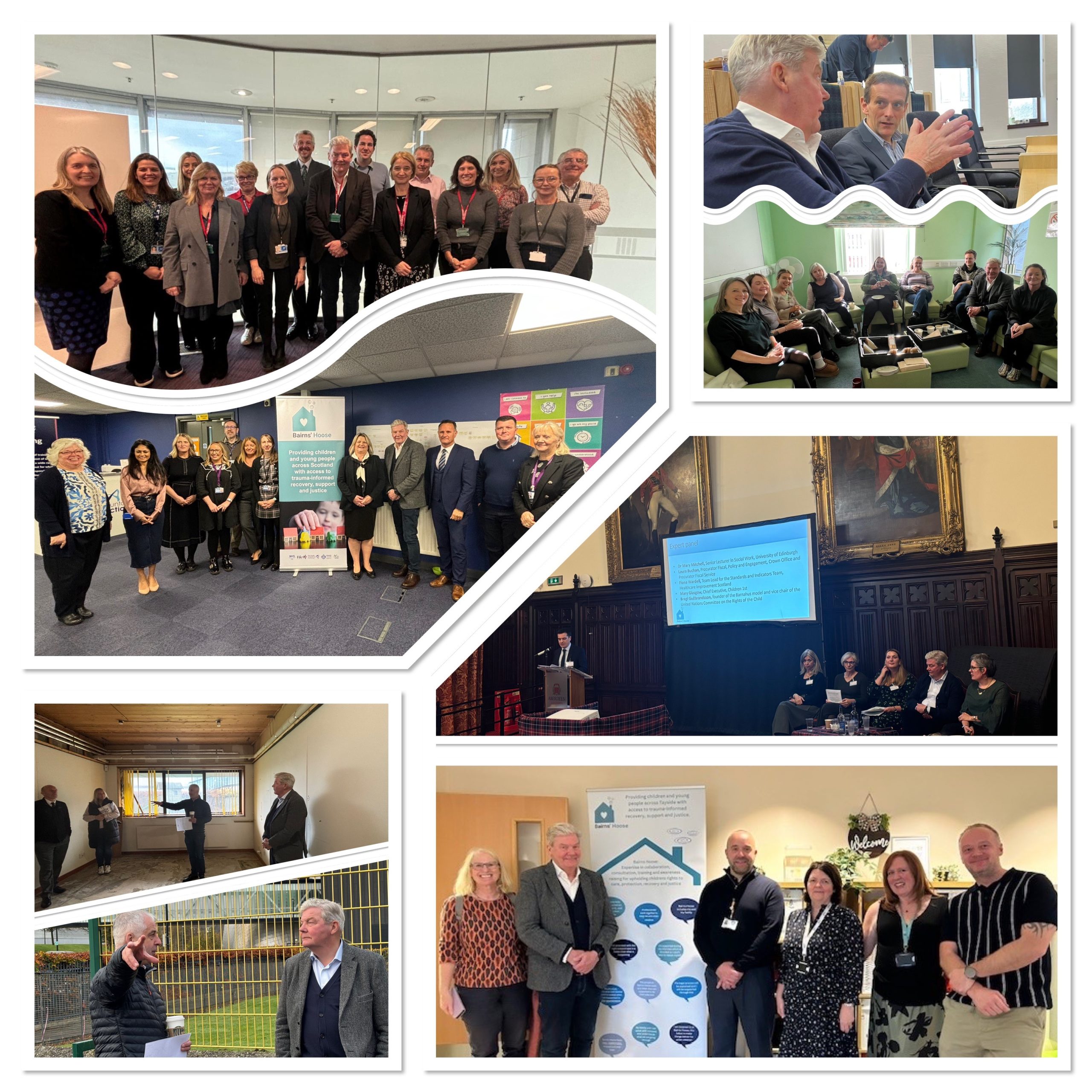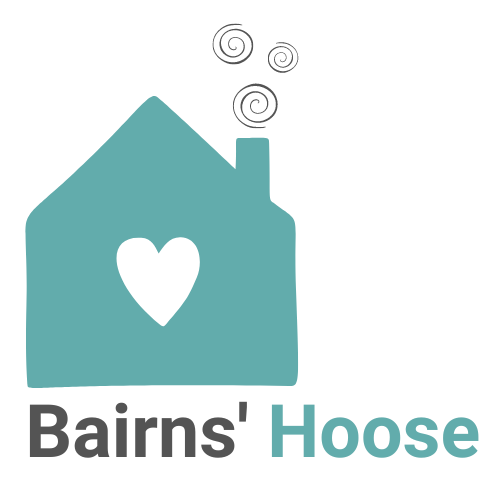On Thursday 24 October 2024, stakeholders from across Scotland gathered at the Town House in Aberdeen to celebrate the first anniversary of the Bairns’ Hoose Pathfinder Programme. This landmark event was part of a Scotland-wide tour by Bragi Gudbrandsson, founder of the Barnahus model and vice chair of the United Nations Committee on the Rights of the Child, who had been visiting various Bairns’ Hoose partnerships across Scotland.
Bragi Gudbrandsson’s tour, between 21 and 25 October, included visits to our partners in North Strathclyde, the Outer Hebrides, Fife, Tayside, Aberdeen City, Aberdeenshire, and finishing with a visit to the Sycamore Partnership in Edinburgh. During his visits, Bragi gained firsthand insights into Scotland’s progress in developing and implementing the Bairns’ Hoose model, adapted from the Icelandic Barnahus approach.
Looking back on his tour and the event in Aberdeen, Bragi Gudbrandsson reflected that “I am truly impressed by Scotland’s commitment to implementing the Bairns’ Hoose model. Throughout my tour, I have witnessed firsthand the dedication and innovative approaches taken by each partnership. Scotland is uniquely positioned to adapt the Barnahus concept, given its robust child protection system and the incorporation of the United Nations Convention on the Rights of the Child. The progress made in just one year is remarkable, and I’m confident that Scotland is setting a new standard in child-centred, trauma-informed care and support that will inspire others across Europe and beyond.”
The anniversary event, attended by representatives from Pathfinder, Affiliate and other partnerships, national organisations involved in the implementation of Bairns’ Hoose and the Scottish Government, opened with a warm welcome from Brian Taylor, Deputy Director of Children’s Rights, Protection & Justice at the Scottish Government, emphasising the day’s significance in Scotland’s journey towards trauma-informed care for vulnerable children.
The Minister for Children, Young People and The Promise, Natalie Don-Innes MSP, in her video address, highlighted the progress made in the first year: “Over the past year, we have made significant strides…We are delighted to have six Pathfinder partnerships and four Affiliate partnerships.” Natalie Don-Innes MSP commended their work thus far and voiced her excitement about their invaluable insights which will inform the national rollout of Bairns’ Hoose.
A key feature of the day was the ‘fireside chat’ involving Bragi Gudbrandsson and Scottish Government officials, Lesley Swanson and Joanna Gilchrist. During this discussion, Bragi shared his reflections on Scotland’s progress, and noted the value of the National Bairns’ Hoose Standards and the beneficial learning that is being gathered through the Bairns’ Hoose Pathfinder phase.
The event featured a series of breakout sessions led by each Pathfinder partnership, allowing participants to hear about the diverse approaches being taken across Scotland. These sessions showcased the adaptability of the Bairns’ Hoose model to different local contexts, from urban settings to remote island communities.
The Minister for Social Care, Mental Wellbeing and Sport, Maree Todd MSP, in her video message, emphasised the transformative nature of the project: “Bairns’ Hoose represents a fundamental shift in how we approach child protection, support, and recovery. At its core, it is about providing integrated, trauma-informed care that puts the child at the centre of everything we do.”
The afternoon saw presentations on the programme’s progress and analytical insights, followed by an expert panel discussion. This panel, chaired by Brian Taylor, brought together a diverse group of experts, including Dr Mary Mitchell from the University of Edinburgh; Laura Buchan from the Crown Office and Procurator Fiscal Service; Dr Fiona Wardell from Healthcare Improvement Scotland; Mary Glasgow from Children First; and Bragi Gudbrandsson.
The discussion covered crucial aspects of the Bairns’ Hoose implementation, addressing topics such as the benefits of national standards, overcoming barriers in the court system, and supporting comprehensive health assessments within the Bairns’ Hoose framework. They also explored strategies for involving young voices in improving the justice system journey. The session concluded with an interactive Q&A, where audience members used Slido to submit questions for the panel.
This anniversary event in Aberdeen marked not just a year of significant progress, but also a recognition of the challenges that lie ahead in Scotland’s journey towards a more child-centred, trauma-informed approach to supporting its most vulnerable children. While great strides have been made, the Bairns’ Hoose programme continues to face challenges such as integrating court processes, addressing geographical disparities in service provision, and ensuring comprehensive health and therapeutic support.
As the Bairns’ Hoose programme moves into its second year, it carries with it the collective dedication and insights gathered from across the country. With continued commitment, multi-agency collaboration, and a focus on adapting to diverse local contexts, from urban centres to remote island communities, Scotland is well-positioned to overcome these obstacles. By addressing these challenges head-on and continuing to involve children’s voices in shaping services, Bairns’ Hoose endeavours to create a more supportive and effective system for children in need of protection and support across Scotland.


